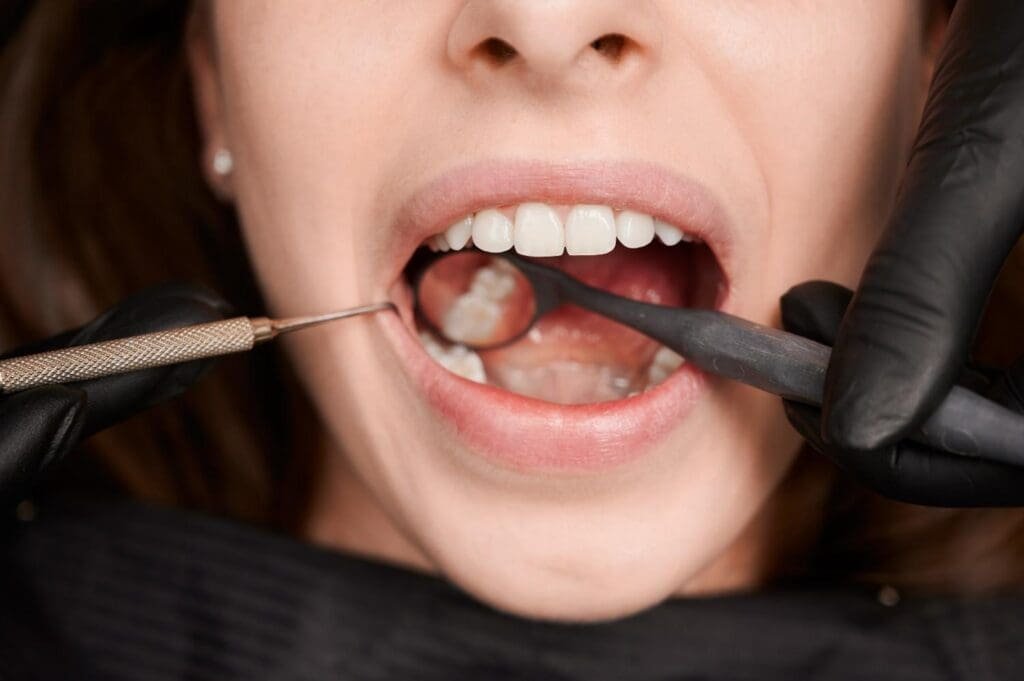When you have a cavity, it makes eating and drinking uncomfortable. You are more sensitive to hot and cold; sweets make your teeth ache. A cavity, if left untreated, can result in tooth loss. So, here’s a few ways you can tell if you are getting a cavity.
How do I tell?
Symptoms will vary from patient to patient, but there are a few ways you can tell.
Sensitivity
Sensitivity is the best way to tell. If you have sensitivity typically, this sensitivity will feel different. Temperature changes will feel more painful or achy, and sweets or acidic foods will also cause pain or discomfort.
Aches and Pains
When a cavity forms, you’ll feel more aches and pains in your teeth. This can be a dull ache or sharp pain after eating certain foods. If you are having more pain than usual, it’s best to see your dentist.
Spots on the Teeth
Another sign of a cavity forming is that you’ll begin seeing spots on your teeth. The spots will typically appear brown or black and can be seen on the surface of your teeth. These spots are stains that indicate that there are holes in the tooth.
Holes in the Teeth
Looking in your mouth and seeing spots on your tooth can indicate a cavity has formed. The holes will appear at the top or sides of your teeth. You’ll be able to see a hole at the top of the tooth but not the side. If you feel holes or pits in your teeth, seeing your dentist is best.
How is a cavity treated?
Depending on the severity of the cavity, the typical treatment is first to identify which teeth are affected. If the cavity has only begun to form, we’ll do a fluoride treatment to prevent it from getting more significant.
If the cavity has progressed, we’ll fill it. We’ll begin by numbing you so you don’t feel any pain. Once you’re numb, we’ll drill into the cavity to remove any decaying material. After we’ve cleared out the tooth, we’ll fill it with a composite resin or porcelain so the cavity doesn’t form in that area.
If the cavity is severe and has significantly damaged the tooth, you may need a crown, root canal, or to remove the tooth altogether. We’ll do our best to save the tooth if possible. We suggest coming in to see us before it gets worse.
Can I prevent a cavity?
You can prevent a cavity at home. The first thing you can do is brush twice a day with fluoride toothpaste. This helps your teeth maintain their strength.
Drink water: this helps rinse your mouth from any residue left by what you eat. This is especially important if you like sweets or acidic foods. It’s best to drink lots of water and eat foods like fruits and veggies because they help increase the saliva in your mouth, which can help with rinsing.
Avoiding foods that can get stuck in the pits of your teeth can also help. Things like chips, sweets or other foods that tend to stick can damage your teeth. If you have these foods, be sure to rinse your mouth or brush your teeth to eliminate that debris
Visit the dentist often. We are here to help maintain your oral health, so seeing us regularly is best. We can offer fluoride treatments and other ways to keep your teeth healthy and cavity-free.
If you think you may be getting a cavity or looking to prevent it, see the team at Toothcrew Dental!

